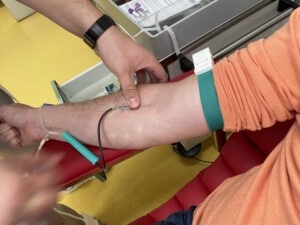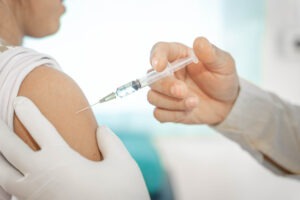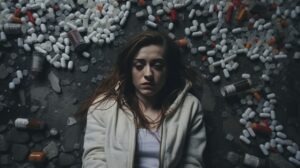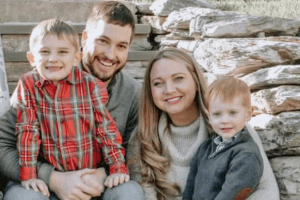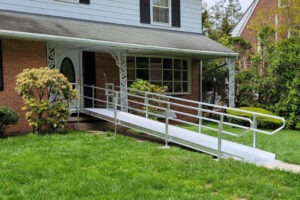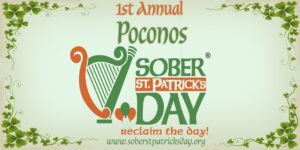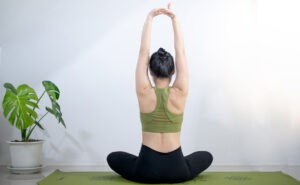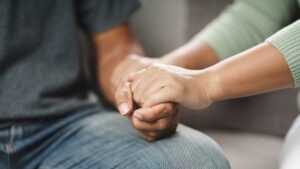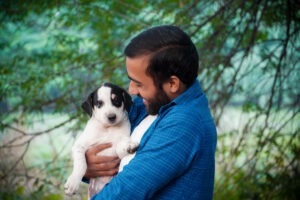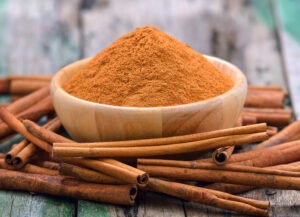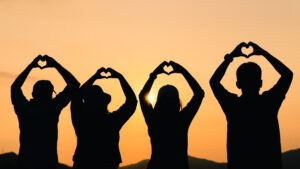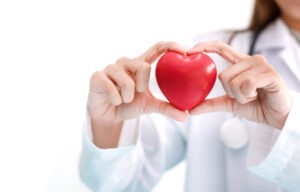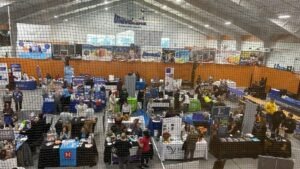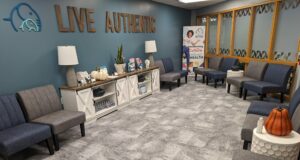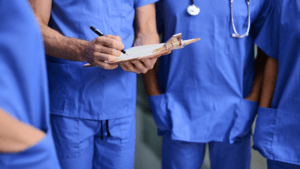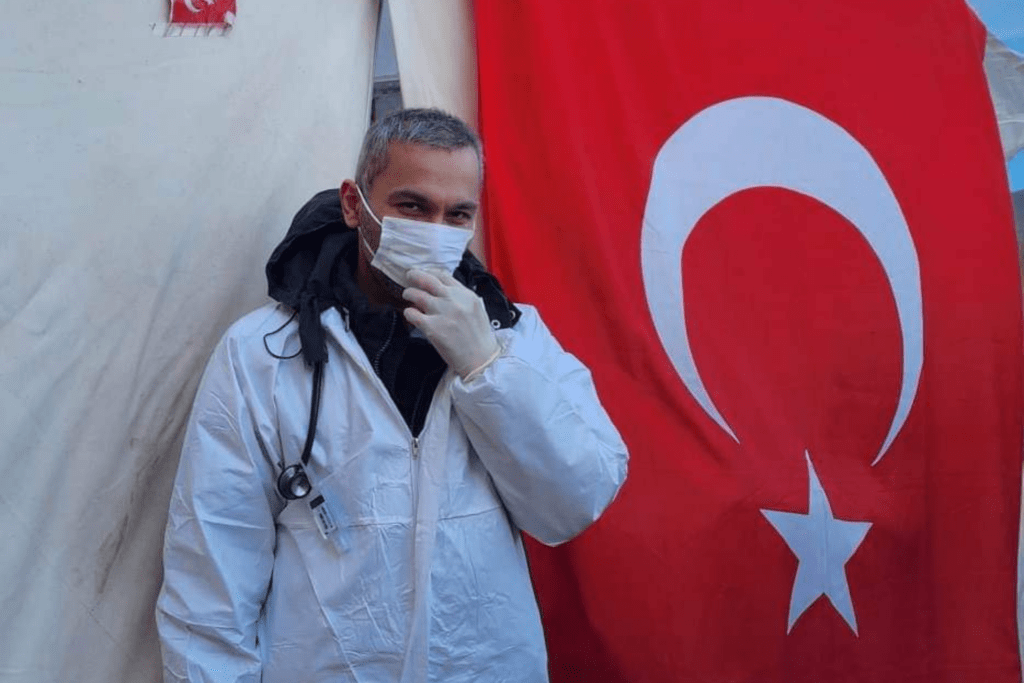
On February 9th, 2023, a magnitude 7.8 earthquake devastated a region of Turkey near the Syrian border. Just nine hours later, an aftershock with a magnitude of 7.5 rippled across a region of Turkey 90 kilometers to the north (USGS.gov, 2023).
The initial quake struck at 4:17 am local time, while many residents slept. Buildings old and new, including many designed to withstand earthquakes, toppled over or pancaked–trapping and crushing residents inside (Hall, 2023).
The death toll from the earthquake has exceeded 50,000.
Many of us watched with fascination and horror as the story of the earthquake unfolded on our news screens. Yet facts, figures, and even news stories and videos failed to capture the true scope of the tragedy.
For one local doctor, Shavkat Ruziev M.D., the harsh realities of the earthquake aftermath became a daily experience during a two week trip to the hardest hit region where he provided medical care to Turkish residents–some just moments after being pulled from the rubble.
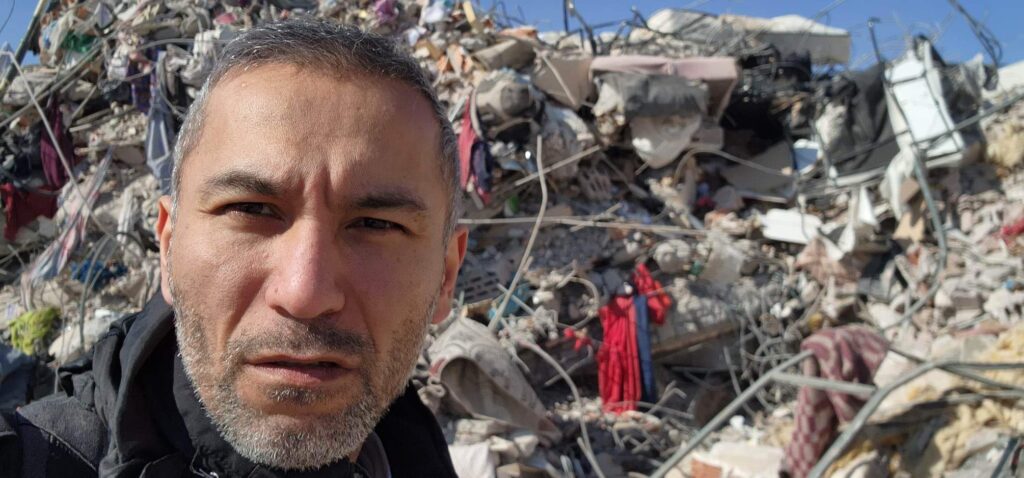
“… more than I bargained for…”
When Dr. Ruziev arrived in Turkey, 15 years of medical experience running ICU’s and ER’s, including during the COVID-19 pandemic, failed to prepare him for the sights, sounds, and smells that he encountered amidst the rubble.
Shortly after his arrival in Turkey, Dr. Ruziev told his office manager back home “I got more than I bargained for…I am getting a crash course in field medicine here.”
During Dr. Ruziev’s two weeks braving sub-zero temperatures, sleeping in a tent, and working lengthy shifts on little sleep, he encountered hundreds of patients. Needs ranged from emotional support to palliative end-of-life care for those whose injuries were mortal.
Seeing an unconscious child pulled from the wreckage, only to succumb to his injuries, was a particularly difficult situation for Dr. Ruziev. “You just feel powerless in a situation like that,” Dr. Ruziev stated when recounting his experience.
Patients were frightened and distraught. Many survivors knew of friends, family, and colleagues still buried in the wreckage, their statuses unknown. Dr. Ruziev and the medical teams did their best to provide the patients with a humanitarian touch in the face of a historic crisis.
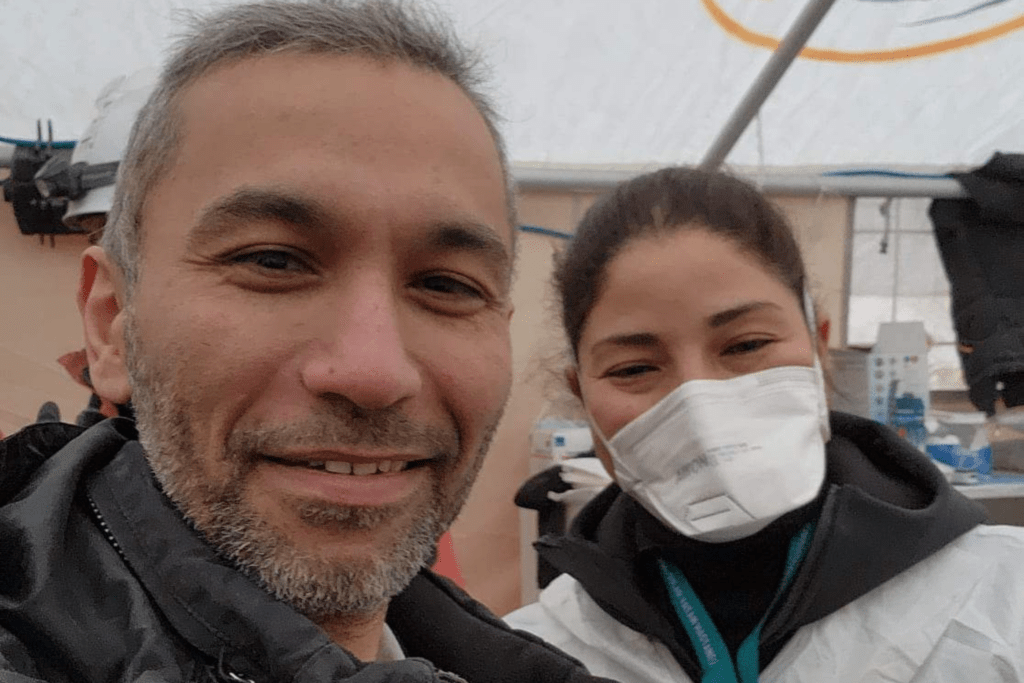
The fragility and unpredictability of life was on full display according to Dr. Ruziev. “As far as you could see, block after block, in all directions for miles, there was total destruction.”
Outside Turkey’s largest hospital, a parking lot was converted to an open air mortuary for hundreds of the quake’s victims. Family members had only days to identify their loved ones prior to burial.
With the medical tents located directly within the rubble of the city, no reprieve from the sites, sounds, and smells of the tragedy was to be found.
“You would be walking past a flattened building and there would be people crying and pointing, saying ‘nan is in there. My nanny is in there!” Dr. Ruziev also described the challenges rescuers faced.
“The wreckage is heavy, its steel and concrete. You can’t dig people out by hand, you have to have heavy equipment. There is only so much equipment available. The number of buildings that you can pick apart looking for survivors is a tiny fraction of the total buildings destroyed. All the while, the clock is ticking and the chance of survival is diminishing. Getting pulled from the wreckage is like winning the lottery with your life.”
Dr. Ruziev explained “within days, the dogs that sniff out survivors could no longer be used because the stench of death became too strong. The smell of death was everywhere. You would walk past a pile of rubble and you could smell it.”
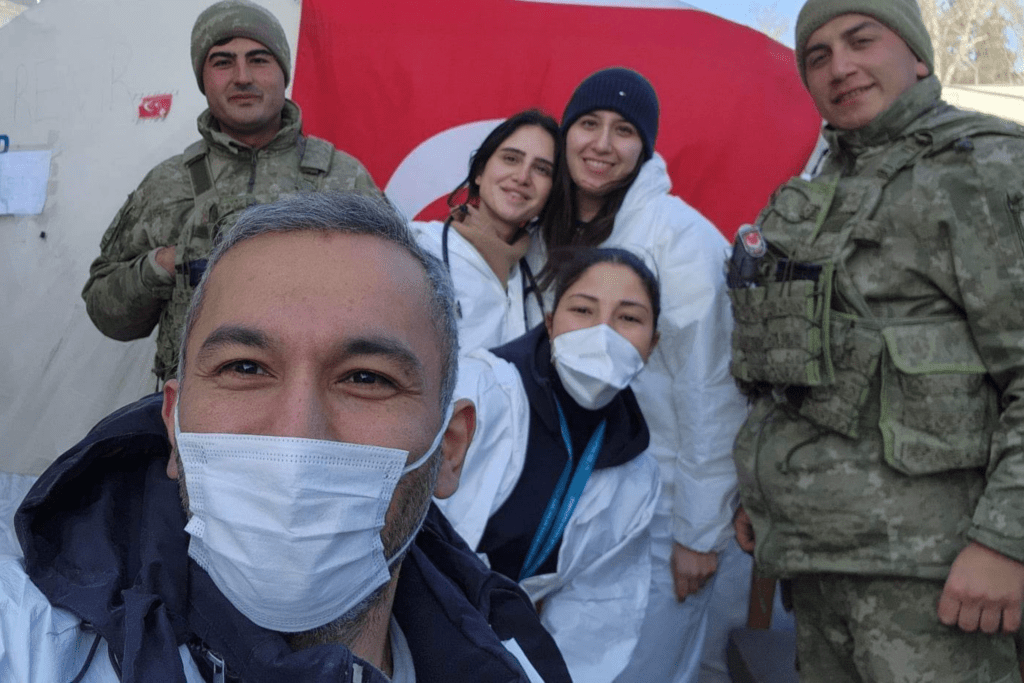
“…the real heroes were the rescuers…”
Dr. Ruziev stated that while he and the medical providers were providing relief to a much needed disaster zone, the true heroes in his eyes were the rescuers.
“The rubble would sometimes collapse on them. It was very unstable. They put their life on the line going into the rubble to rescue someone.”
He also stated “it was a big deal when they found someone, it was a rush, everyone cheered. They would then have the person brought to the medical team for stabilization and transport to a hospital outside the disaster zone. “
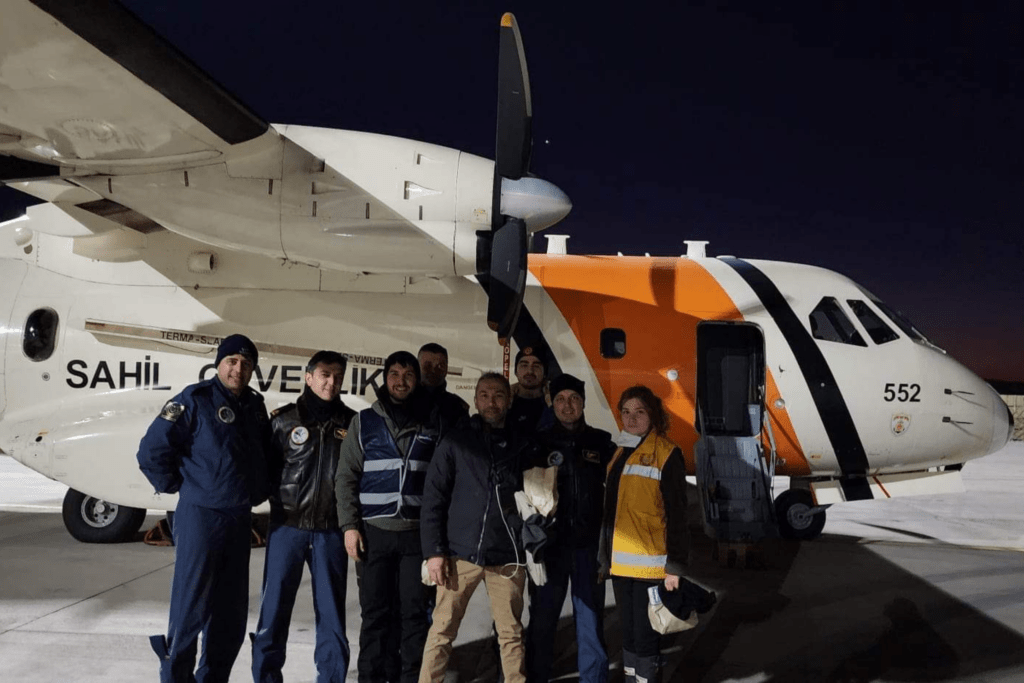
“…the sense of humanity and unity was amazing to experience…”
Upon arrival in Turkey, there was not yet organization to the medical relief efforts. Teams began self assembling and doing what they could to help the residents affected by the quake.
“There were medical teams from all around the world, there was no sense of boundaries or differences, we were all there with a shared purpose…the sense of humanity and unity was amazing to experience…”
Dr. Ruziev initially joined a German team but was later paired with a Turkish pediatrician and a team of nurses who served as his team for the remainder of his rescue efforts.
During his experience, colleagues still found time to bantar, joke, and otherwise lift up and support one another in addition to the patients they were treating. Towards the end of his two week stay, the Turkish relief efforts were well underway.
“I felt like the calvary was coming. I was ready to get back to the office, back to my business, and back to my patients, doing what I love.” Teams of Turkish physicians, nurses, and even students in medicine and nursing began arriving in droves to the earthquake devastated region.
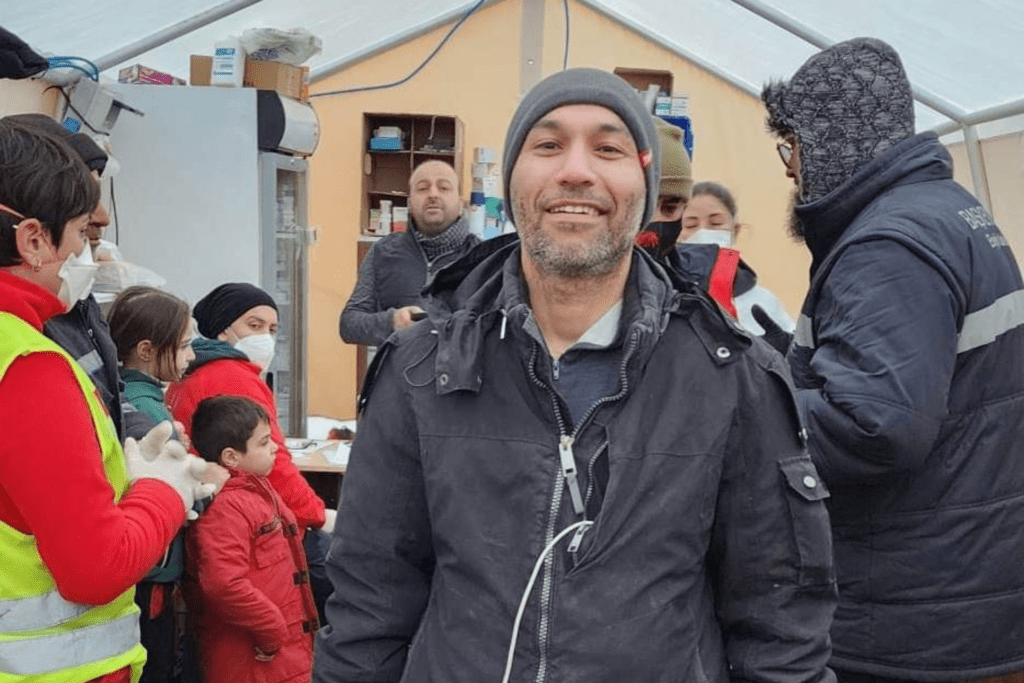
Coming home
Back in the states, Dr. Ruziev recounts his Turkish trip with sobriety and gratitude. Feeling thankful for the experience, Dr. Ruziev notes that the trip underscored more deeply a truth that we all know but feel to differing degrees at different times.
Life is short, unpredictable, and fragile. “Those people went to bed that night and never knew what was about to happen to them.”
“I am happy I can do something I love. Working at Lancaster Wellness, seeing the people we have helped, the lives we have changed, what more could I want?”
Dr. Ruziev frequently stated to his practice manager Donovan Carper in the weeks following the experience “how lucky are we to be able to do something we love?”
“I was glad I could be over there and help. It was definitely needed. They didn’t need money at that time, they needed helping hands. But I was also thankful to be able to come back home.”
Tragedies such as the earthquake in Turkey remind us to value the time we have on earth. Amidst the wreckage and destruction, the borderless collaborative human effort to overcome and move forward was once again manifested.
Finding ways we can contribute and serve others using our unique talents is a philosophy frequently echoed by Dr. Ruziev. “In Sufism, there is a philosophy that calls for ‘losing yourself in the service of others’…I feel like that’s what I want to do.”
Tragedies will happen again. Thankfully, there are many like Dr. Ruziev from around the world who answer the call.
References
Hall, S. (2023). What Turkey’s earthquake tells us about the science of seismic forecasting. Retrieved from https://www.nature.com/articles/d41586-023-00685-y
USGS.gov. (2023). New interactive geonarrative explains the 2023 Turkey, earthquake sequence. Retrieved from https://www.usgs.gov/programs/earthquake-hazards/news/new-interactive-geonarrative-explains-2023-turkey-earthquake















